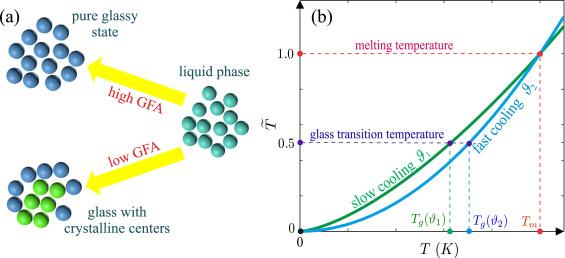A paper by Kazan Federal University appeared in early access in Journal of Non-Crystalline Solids.

Credit: Kazan Federal University
Co-authors Bulat Galimzyanov and Anatolii Mokshin (Department of Computational Physics) have developed a unique model that allows for a universal interpretation of experimental data on viscosity for systems of different types, while also proposing an alternative method for classifying materials based on a unified temperature scale.
The publication was funded by Russian Science Foundation’s grant ‘Theoretical, simulation and experimental studies of physical and mechanical features of amorphous systems with inhomogeneous local viscoelastic properties’, guided by Professor Mokshin.
Using the developed viscosity model, scientists processed experimental data obtained for thirty different types of systems: from simple quartz glass to complex organic compounds such as salol and propylene carbonate.
“The model reproduces quite accurately the experimental temperature dependences of the viscosity of such materials both near the melting point and near the glass transition temperature, below which the system freezes while still preserving the liquid structure. At the same time, the model uses only two adjustable parameters. In comparison, other existing models use at least three of such parameters. Therefore, this model can be used to more accurately predict the low-temperature physical parameters of materials based on high-temperature characteristics such as thermal conductivity and entropy at the melting point,” comments Associate Professor Galimzyanov.
The results were obtained using an original method of temperature scaling.
“Earlier, we have developed a method to scale the temperature and the phase diagram of various types of systems. This gave a toll to compare the experimental temperature dependences of the viscosity of systems regardless of their preparation conditions. This temperature scale formed the basis of the developed viscosity model, which made it possible to minimize the number of adjustable parameters and improve the accuracy of data approximation,” adds Anatolii Mokshin.
The research contributes to making corrections to the existing methods of classification for glass-forming materials and to establishing a unified viscosity model for various types of compounds.
###
Media Contact
Yury Nurmeev
[email protected]
Original Source
https:/
Related Journal Article
http://dx.




